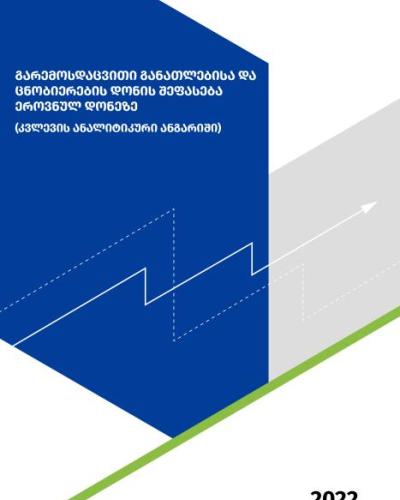Publication
Assessing the level of environmental education and awareness in Georgia
01 June 2023

Both qualitative and quantitative research methods are used in the research including expert interviews, focus groups, and a quantitative survey conducted across various regions in Georgia.
The research was conducted in August- September 2022 by the Institute of Social Studies and Analysis (ISSA) in partnership with the Environmental Information and Education Centre with assistance from UNDP and Sweden.
Key findings:
- 62 percent of the population believes that the negative consequences of climate change are already being experienced in Georgia.
- According to 84 percent of respondents, a law should be in place to regulate waste sorting.
- When buying consumer goods (e.g., products), every second respondent does not use their own bag or pay attention to how much the item is over-packed.
- The vast majority (85 percent) is aware of the existing air pollution challenges.
- 64 precent of the respondents did not receive environmental education at the level of preschool education, 55 percent at the level of university, 61 percent at the level of technical education, and 65 percent at the level of informal education.
- 65 percent of the population prefers to walk short distances and use public transport instead of a car when possible. Nevertheless, the share of private car users (18 percent) exceeds the share of public transport users (13 percent).
- Men tend to rely more heavily on private cars for transportation. 25 percent of men use private cars at least once a day, while only 12.5 percent of women rely on private cars for daily transportation.
Published by
UNDP










